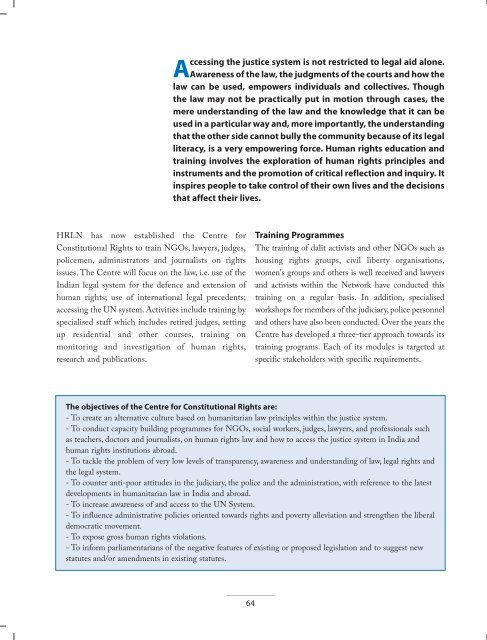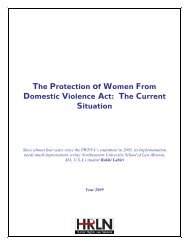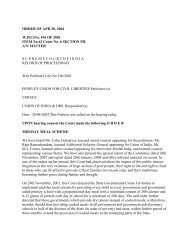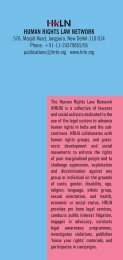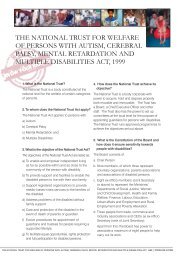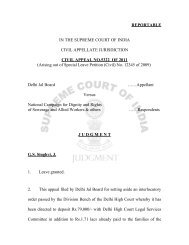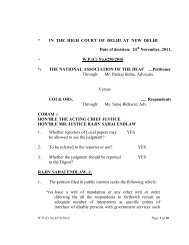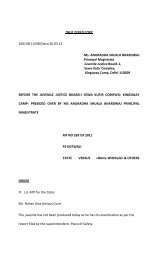Create successful ePaper yourself
Turn your PDF publications into a flip-book with our unique Google optimized e-Paper software.
Accessing the justice system is not restricted to legal aid alone.Awareness of the law, the judgments of the courts and how thelaw can be used, empowers individuals and collectives. Thoughthe law may not be practically put in motion through cases, themere understanding of the law and the knowledge that it can beused in a particular way and, more importantly, the understandingthat the other side cannot bully the community because of its legalliteracy, is a very empowering force. <strong>Human</strong> rights education andtraining involves the exploration of human rights principles andinstruments and the promotion of critical reflection and inquiry. Itinspires people to take control of their own lives and the decisionsthat affect their lives.<strong>HRLN</strong> has now established the Centre forConstitutional <strong>Rights</strong> to train NGOs, lawyers, judges,policemen, administrators and journalists on rightsissues. The Centre will focus on the law, i.e. use of theIndian legal system for the defence and extension ofhuman rights; use of international legal precedents;accessing the UN system. Activities include training byspecialised staff which includes retired judges, settingup residential and other courses, training onmonitoring and investigation of human rights,research and publications.Training ProgrammesThe training of dalit activists and other NGOs such ashousing rights groups, civil liberty organisations,women's groups and others is well received and lawyersand activists within the <strong>Network</strong> have conducted thistraining on a regular basis. In addition, specialisedworkshops for members of the judiciary, police personneland others have also been conducted. Over the years theCentre has developed a three-tier approach towards itstraining programs. Each of its modules is targeted atspecific stakeholders with specific requirements.The objectives of the Centre for Constitutional <strong>Rights</strong> are:- To create an alternative culture based on humanitarian law principles within the justice system.- To conduct capacity building programmes for NGOs, social workers, judges, lawyers, and professionals suchas teachers, doctors and journalists, on human rights law and how to access the justice system in India andhuman rights institutions abroad.- To tackle the problem of very low levels of transparency, awareness and understanding of law, legal rights andthe legal system.- To counter anti-poor attitudes in the judiciary, the police and the administration, with reference to the latestdevelopments in humanitarian law in India and abroad.- To increase awareness of and access to the UN System.- To influence administrative policies oriented towards rights and poverty alleviation and strengthen the liberaldemocratic movement.- To expose gross human rights violations.- To inform parliamentarians of the negative features of existing or proposed legislation and to suggest newstatutes and/or amendments in existing statutes.64


